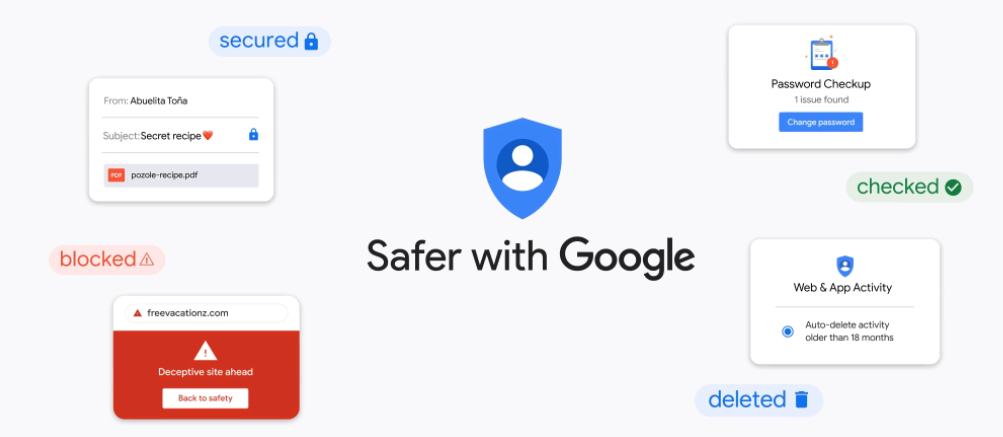Google auto-enrolling 2FA leads to 50% drop in hacked accounts
Over 150 million users benefited from Google's auto-enrolled two-factor authentication

After Google started auto-enrolling over 150 million users to its two-factor authentication (2FA) process in 2021, the tech giant announced a significant decrease in accounts being compromised.
To celebrate Safer Internet Day, Google shared updates on its cybersecurity plans to keep users safe, including new partnerships, the "strongest protections to date" for high-risk users and groups, along with enhanced browsing security for everyone.
- How to do 2FA right: Getting started with two-factor authentication
- Best password managers of 2022
- Turn off email tracking — here's how
Google's goal to automatically enroll 150 million user accounts to start using its two-factor authentication (or two-step verification, as Google calls it) security process by the end of 2021 came through. It required people to sign in using a password and confirm their identity on another device via a "Google Prompt" — commonly done on a smartphone.
Since implementing the security measure, Google has seen a 50% decrease in accounts being compromised. Despite Google making it mandatory, 2FA is an extra layer of security that is worth setting up to keep hackers at bay.
In the announcement, Google also introduced "Account Level Enhanced Safe Browsing" that's set to arrive in March. This feature offers the "broadest security protection against threats you encounter on the web and against your Google Account." It will be available to turn on in account settings soon.
"Ahead of the upcoming 2022 U.S. midterm elections, we’re expanding our efforts to protect these high-risk users," the post states. "We’ve teamed up with organizations across the political spectrum to establish the Campaign Security Project, providing organizations with the tools to train candidates and campaign workers on how to stay safe online."
These groups include the Veterans Campaign, Collective Future, Women’s Public Leadership Network, LGBTQ Victory Institute, Center for American Ideas, University of San Francisco, Emerge, Latino Victory and more.
We expect even more accounts will be enrolled to start using Google's 2-Step Verification process, so keep an eye out for an email. Speaking of 2FA, malicious hackers can easily use 2FA against users that use their phone numbers. Find out more in our PSA about two-factor authentication. For more ways to stay secure online, check out our best authenticator apps.
Sign up to receive The Snapshot, a free special dispatch from Laptop Mag, in your inbox.

Darragh Murphy is fascinated by all things bizarre, which usually leads to assorted coverage varying from washing machines designed for AirPods to the mischievous world of cyberattacks. Whether it's connecting Scar from The Lion King to two-factor authentication or turning his love for gadgets into a fabricated rap battle from 8 Mile, he believes there’s always a quirky spin to be made. With a Master’s degree in Magazine Journalism from The University of Sheffield, along with short stints at Kerrang! and Exposed Magazine, Darragh started his career writing about the tech industry at Time Out Dubai and ShortList Dubai, covering everything from the latest iPhone models and Huawei laptops to massive Esports events in the Middle East. Now, he can be found proudly diving into gaming, gadgets, and letting readers know the joys of docking stations for Laptop Mag.

